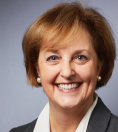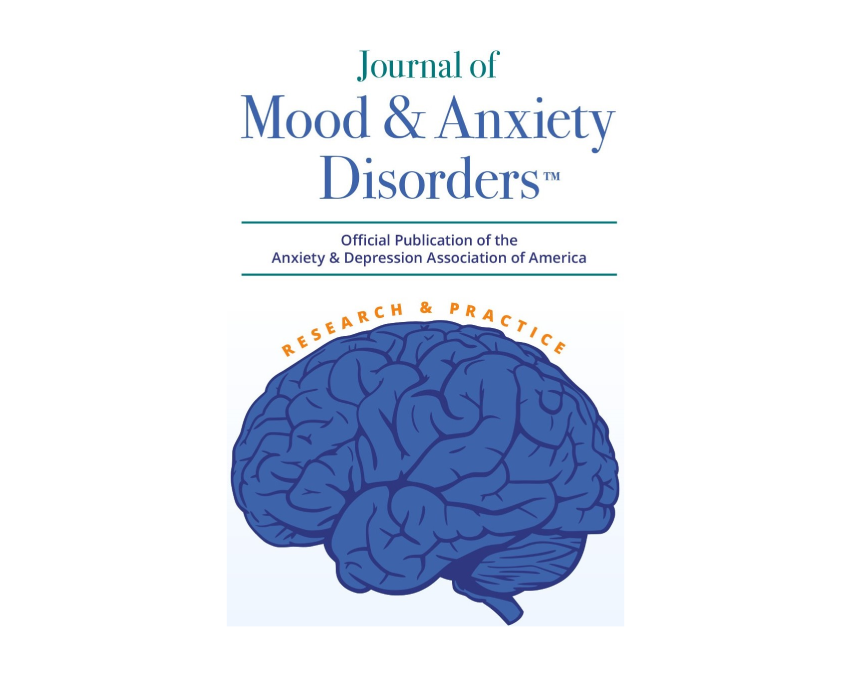Spotlight on Maternal Mental Health: Treatment and Research
Wednesday, October 30th, 12:00pm - 4:00pm ET - Register Today!
- Part 1: Universal Screening for Maternal Mental Health Disorders: Challenges and Recent Progress
- Part 2:Treating Maternal Perinatal Mood Disorders via Collaborations with Obstetrics & Gynecology: Evidenced-Based Psychotherapeutic Approaches to Use Now
- Part 3: Bringing Maternal Mental Health into the Pediatric Setting: HealthySteps and the Focus on Two-Gen Interventions
Moderator
 Kimberly Yonkers, MD
Kimberly Yonkers, MD
Director, Center for Wellbeing of Women and Mothers
Full Presentation Descriptions (In Order of Individual Talk)
 Universal Screening for Maternal Mental Health Disorders: Challenges and Recent Progress featuring Joy Burkhard, MBA - (60 minutes)
Universal Screening for Maternal Mental Health Disorders: Challenges and Recent Progress featuring Joy Burkhard, MBA - (60 minutes)
This webinar will provide an overview of the national landscape surrounding efforts to increase screening rates for maternal mental health disorders.
These disorders impact up to 1 in 5 women, yet most will not be screened, diagnosed or treated. During this presentation, Joy Burkhard, of 2020 Mom will highlight the various validated and most commonly used screening tools, the recent provider trade association and the United States Preventive Services Task Force recommendations surrounding universal screening, and address the barriers to actual implementation. She will also address legislative efforts at a federal and state level and why legislation is being looked to as the solution to scale change.
Finally, this session will end with an overview of tools available to those developing state or community level strategic plans aimed at increasing diagnosis and treatment rates.
 Treating Maternal Perinatal Mood Disorders via Collaborations with Obstetrics & Gynecology: Evidenced-Based Psychotherapeutic Approaches to Use Now featuring Dr. Margaret Altemus, MD and Dr. Catherine Monk, PhD - (90 minutes)
Treating Maternal Perinatal Mood Disorders via Collaborations with Obstetrics & Gynecology: Evidenced-Based Psychotherapeutic Approaches to Use Now featuring Dr. Margaret Altemus, MD and Dr. Catherine Monk, PhD - (90 minutes)
Obstetricians and gynecologists are a portal to meeting women’s overall healthcare needs, including mental health. These are typically long-term provider-patient relationships with reliably-repeated appointments (especially during the prenatal period), allowing for trust to develop and the identification of change in mood or stressful life circumstances that can contribute to anxiety and depression. This portion of the webinar has two foci: (1) reviewing emerging models for mental health providers to leverage relationships with obstetricians and gynecologists to improve maternal mental health and (2) a discussion of using current psychotherapy techniques to treat women now. We will briefly review prevalence of mental health problems in women, risk factors for them, and highlight the current conceptualization of mental health disorders as on a continuum and having significant life course factors contributing to risk for them. Specific operations for obtainable collaborative care arrangements will be reviewed. In depth discussion will be provided focused on psychotherapeutic techniques to treat anxiety and depression during pregnancy and the postpartum periods, with review of techniques to use for mood disturbances related to traumatic peripartum experiences such as pregnancy loss or significant medical complications for mother and/or baby. When mental health providers and ObGyns partner, and psychotherapy is more readily available, maternal health is greatly improved.
Bringing Maternal Mental Health into the Pediatric Setting: HealthySteps and the Focus on Two-Gen Interventions featuring Dr. Rahil Briggs, PsyD - (45 minutes)
This presentation will focus on the pediatric primary care setting as an optimal venue to address maternal mental health.
Pediatric primary care reaches nearly all young children and their caregivers in the United States and is an indispensable access point for serving young children and their caregivers during a critically important period for both. No other system has the same connection to families, their young children and their communities. Yet, pediatric primary care physicians have an impossibly long list of services to provide in just 15-minute well-child visits, and the adult mental health community has long been frustrated with the inability to bring maternal mental health screenings into the well child visit. HealthySteps, a program of ZERO TO THREE, partners with pediatric primary care physicians to ensure the health, well-being and school readiness of babies and toddlers, which is perhaps impossible to attain without also ensuring the mental health of their caregivers.
This presentation will present the HealthySteps program as a mechanism for reliably and systematically bringing caregiver mental health into the pediatric visit. Dr. Briggs will share the HealthySteps population-based, risk-stratified model of care, including the eight core components of the program and the focus on fidelity. The presentation will also highlight the HealthySteps theory of change related to maternal depression screening, referral and intervention, and the research findings that suggest HealthySteps may be an effective program to address the intergenerational effects of parental mental health concerns.
Finally, the presentation will close with actionable insights gleaned from over a decade of doing this work, hearing from pediatricians, “I’ll never screen for maternal depression. It’s outside of my training and my scope of practice,” and working to help them, just 18 months later, proclaim, “I had no idea how much these mothers were suffering. I’m so glad we’re doing this."
For more information, contact Astrid Masfar.








